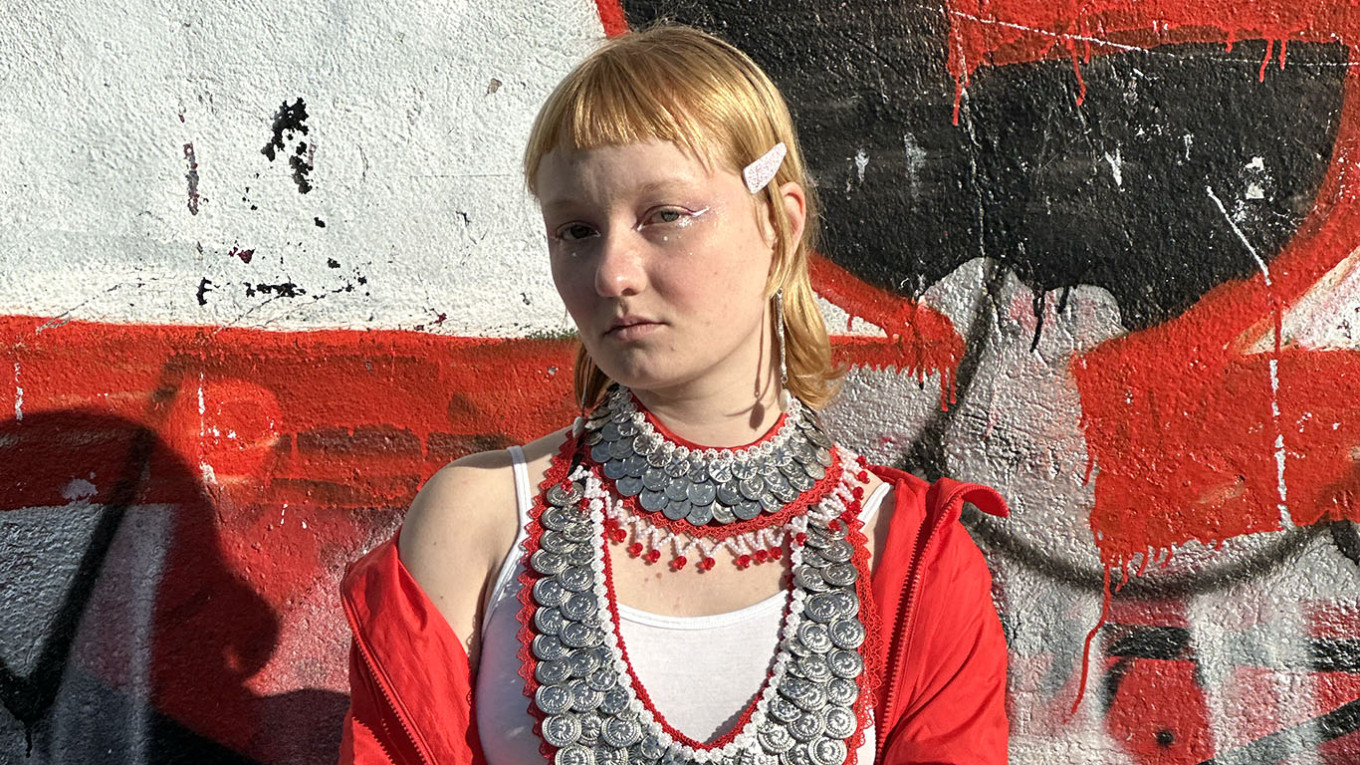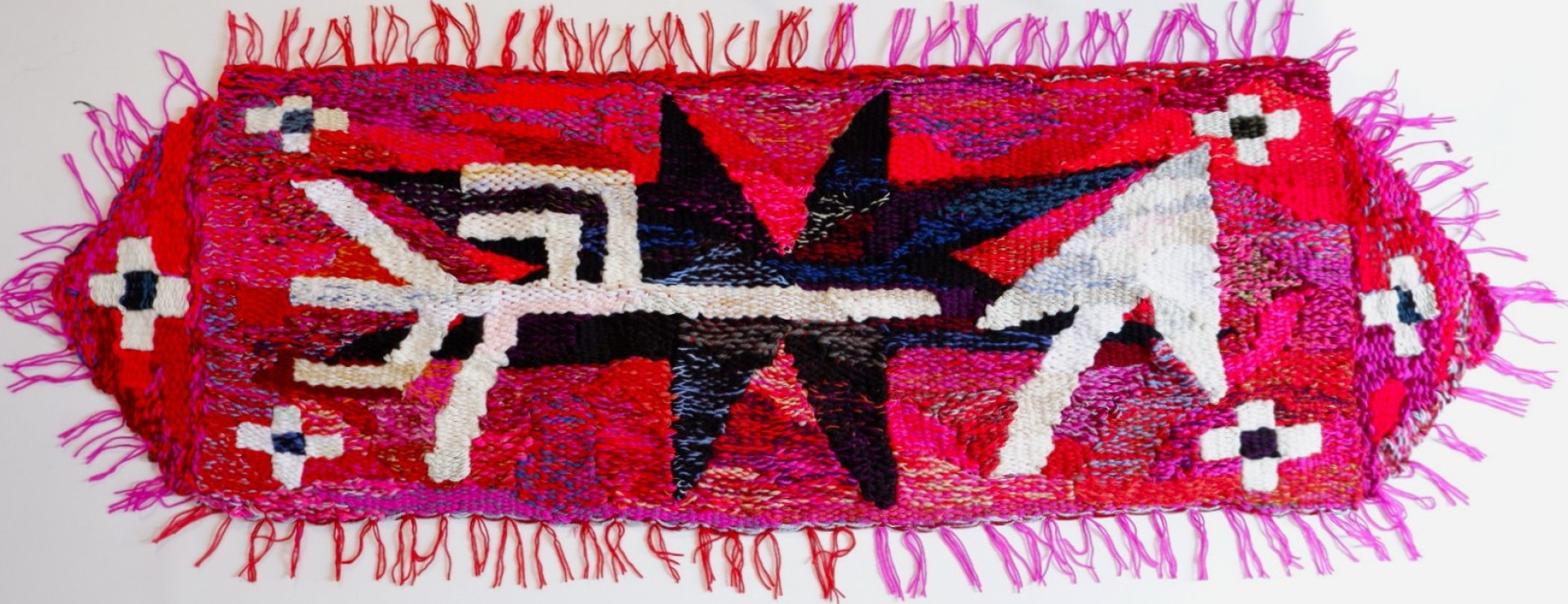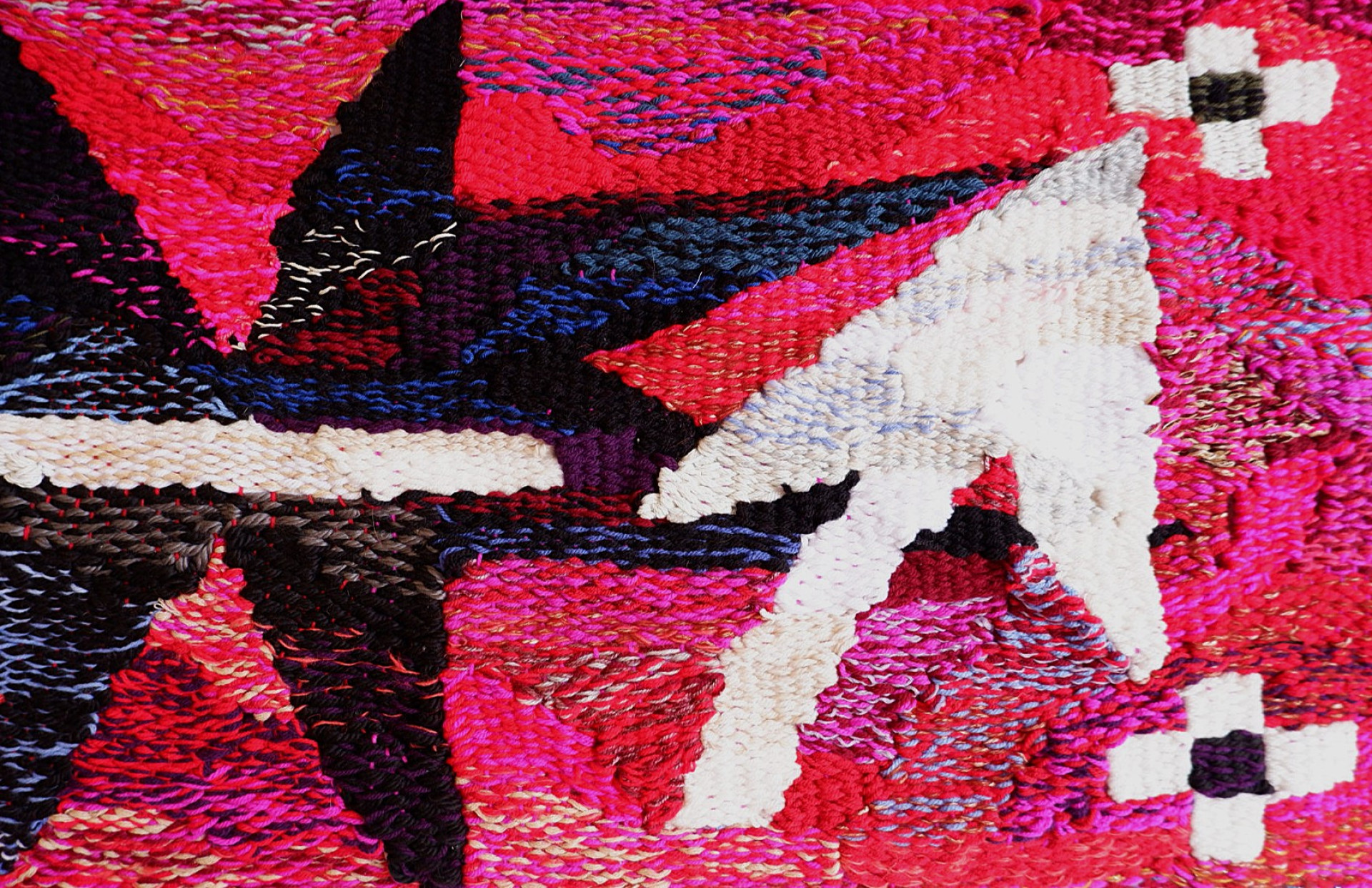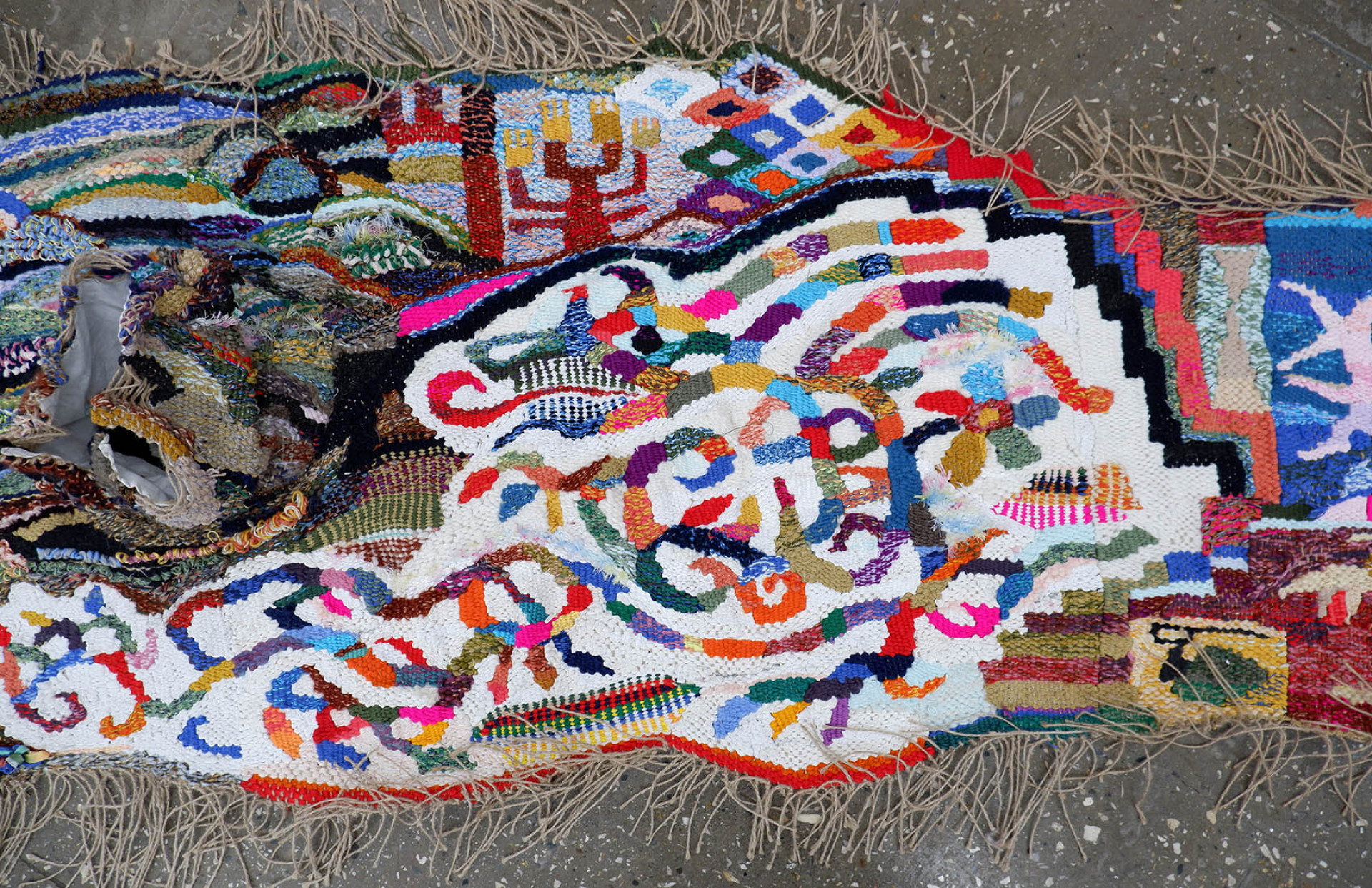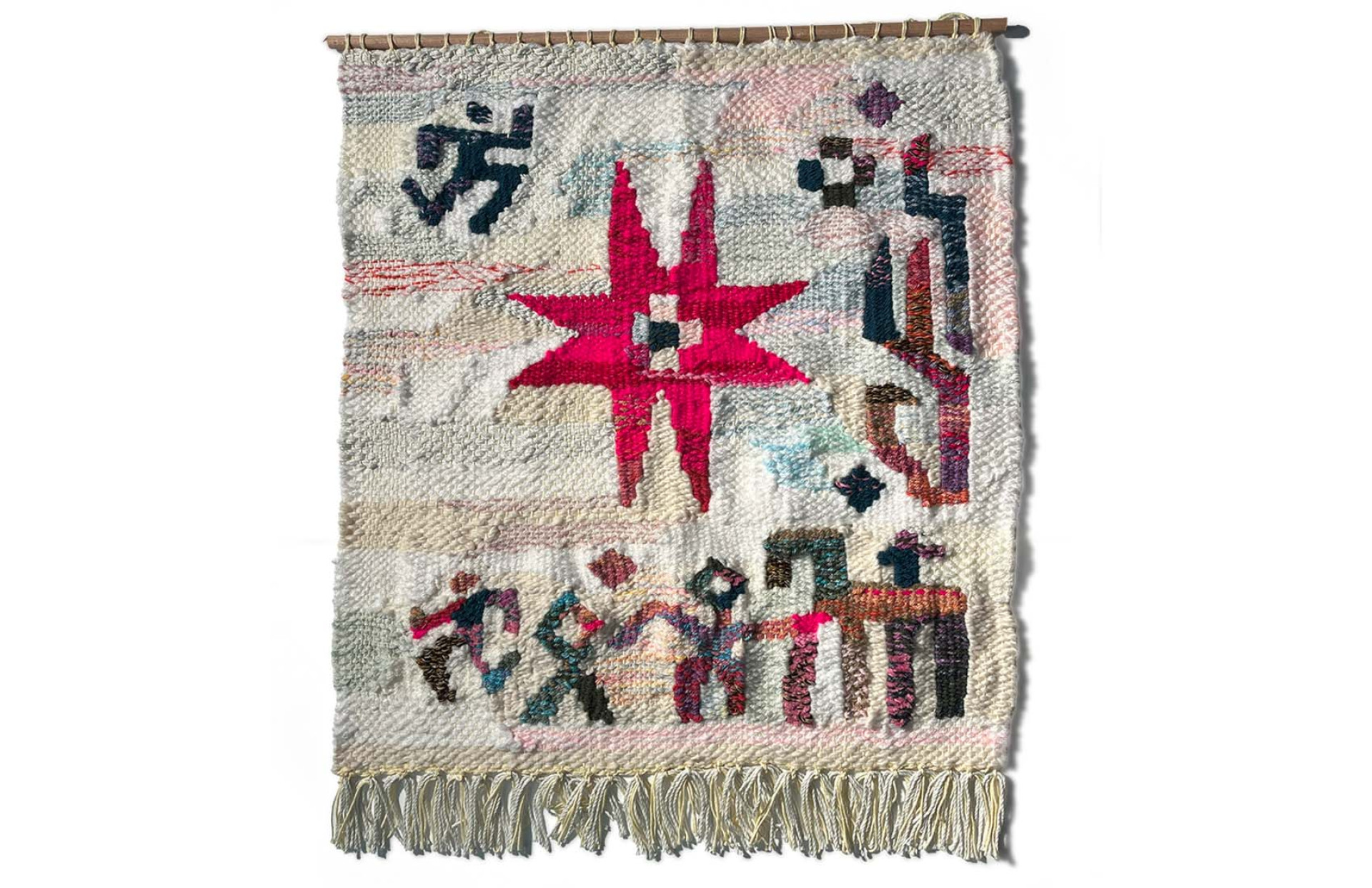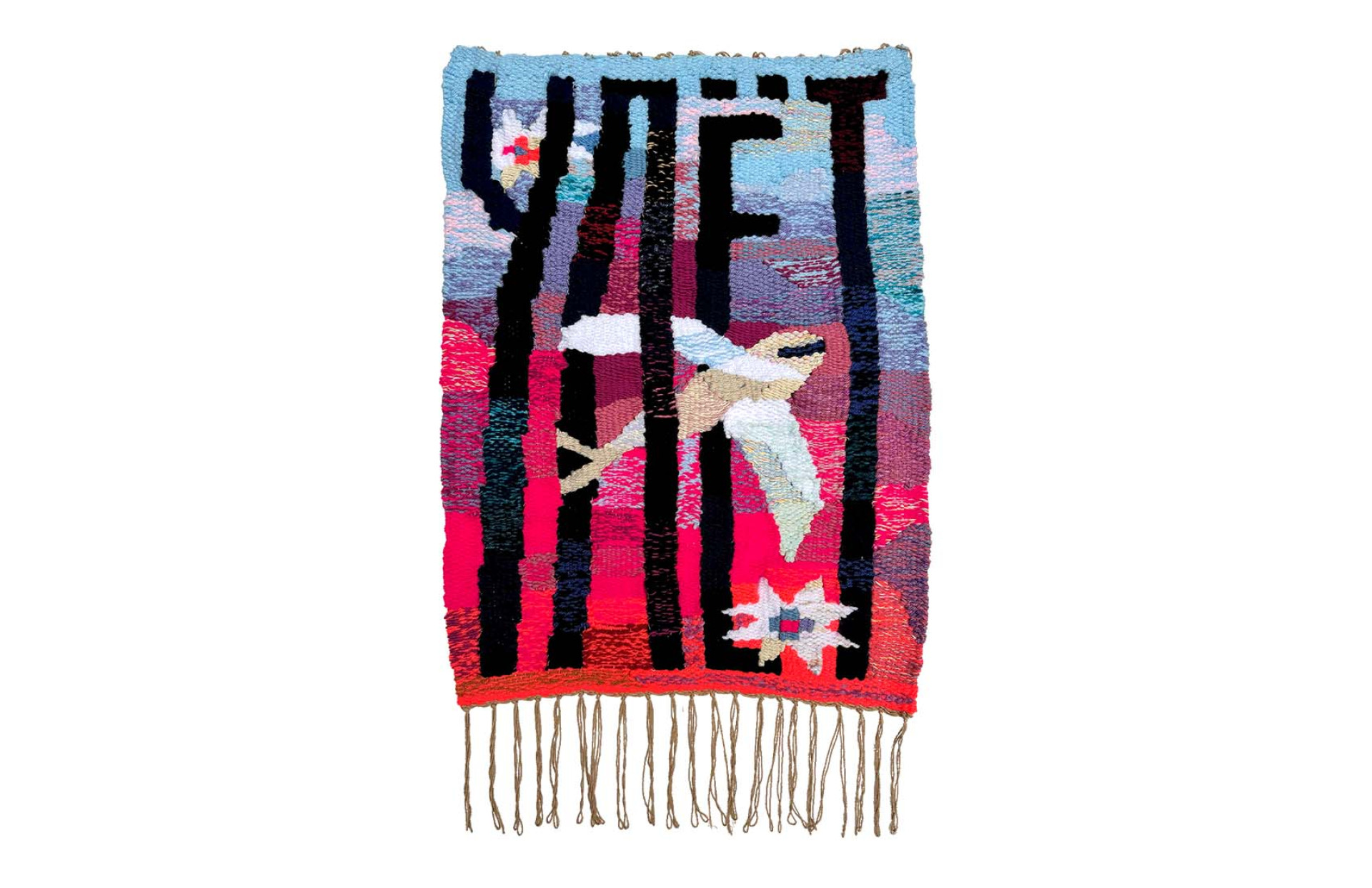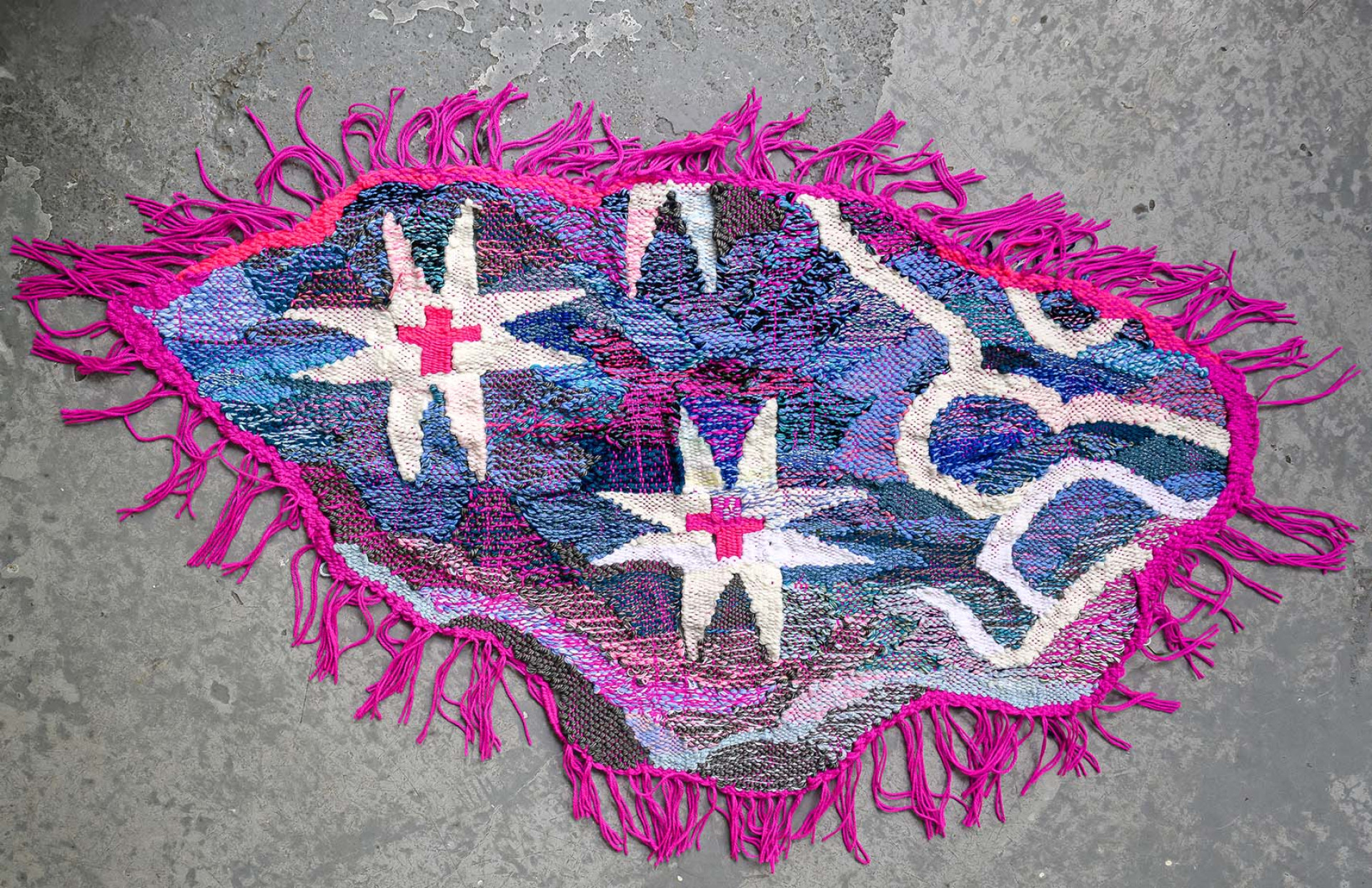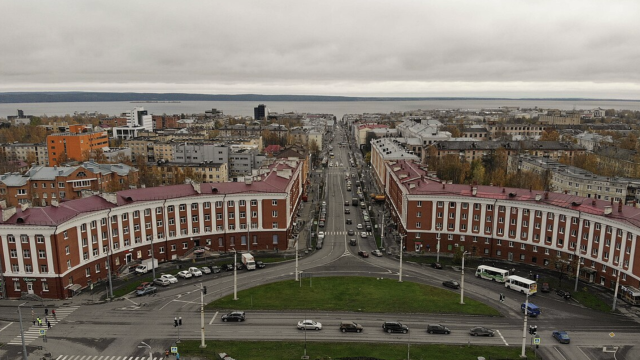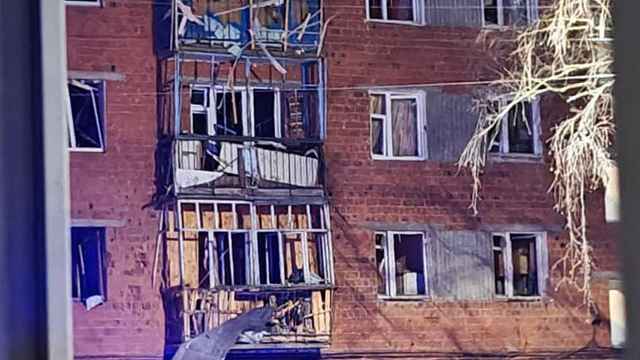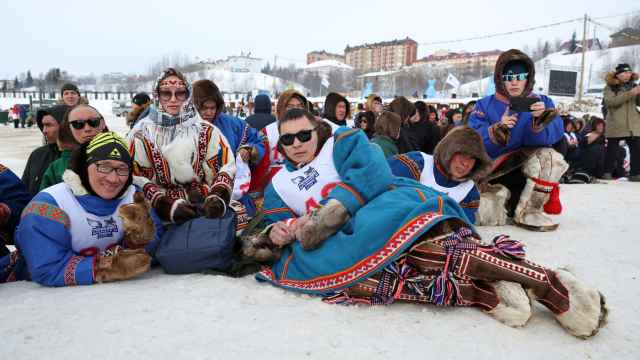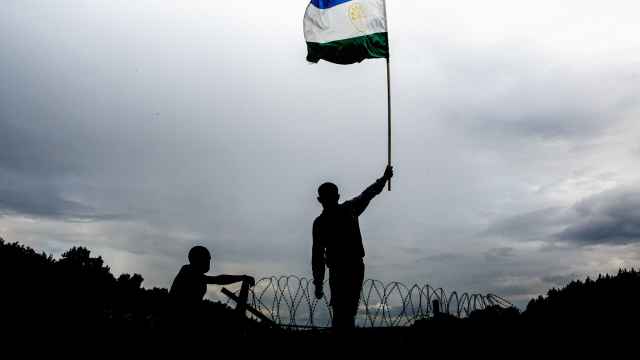“I’m an artist working with my Chuvash heritage,” Aysha Demina told The Moscow Times when asked what must be kept in mind when connecting with her artwork.
“The Chuvash people have been colonized many times…and yet, they continue to engage with their disappearing historical traditions,” she said.
Chuvash are a Turkic ethnic group of slightly more than 1.1 million people, the majority of whom live in the republic of Chuvashia in Russia’s Volga region. Though most modern Chuvash are Orthodox Christians, some also follow the group’s historic polytheistic faith.
The native Chuvash language is the only surviving member of the Bulgharic branch of Turkic languages. Having lost over 1 million speakers between 2010-2021, according to official census data, it is one of the hundreds of Indigenous languages of Russia under threat of extinction.
Born in Moscow, Demina, 25, forged a strong connection with her heritage over the years, taking to studying the language and history of her people, both of which fell victim to Russian colonization.
In her art, Demina turned to Chuvash handweaving traditions, becoming one of a new generation of Indigenous artists from Russia who challenge the Moscow-imposed, “museumified” canons of Indigenous art.
The Moscow Times spoke with Demina ahead of the second edition of Artists Against the Kremlin, an exhibition by MT and All Rights Reversed gallery at De Balie in Amsterdam, where her work will be on display from Aug. 15-Sept. 4.
The Moscow Times: What is the inspiration behind the works that will be shown as part of the Artists Against the Kremlin exhibition?
AD: I have prepared a special series of works for this exhibition: three large tapestries, which reference an old Chuvash myth about three suns.
The Chuvash legend states that there was a time when there was not one, but three suns in the sky. People once summoned an archer to shoot down two of them — and he did. Since then, we have been living in a broken fairy tale.
In Chuvashia, the three suns are depicted everywhere, on the coat of arms, on traditional clothing, in memory of the mistake people once made. To me, this legend is about accepting responsibility for human intrusion.
The three tapestries exhibited at Artists Against the Kremlin each show a different arrow: one pierces a word, another — a sun, and yet another — a heart.
This sequence is about taking responsibility for using weapons…And it is also a reminder that sometimes these precise arrows should be turned inward into our consciousness to clear it of unnecessary meanings and obsolete paradigms.
The tapestries themselves are soft, made of handwoven fabrics, some of which I collected in exile, some brought from Russia and some were gifted to me — there are even threads that once belonged to my grandmother. The material softens the militaristic images.
MT: How does the medium of your work relate to the Chuvash culture and decolonial optics that you employ in your artworks?
The tradition of weaving has been preserved in my family for centuries. I learned how to weave from my mother. I also learned different techniques of pattern-making while traveling around Russia on volunteer missions.
In Soviet times, the value of hand-weaving was deeply diminished. Craftsmanship in general was seen as inferior, outdated and even counterideological to industrial mass production. That’s why it’s so important for me to keep weaving by hand, even though it takes an enormous amount of time and energy. I intentionally preserve a kind of 'roughness' in my work — to make it visible that it was made by hand.
There is also an ecological aspect to my work: I often use recycled or repurposed materials. I even dismantle and reuse my own artworks when needed.
Weaving also carries a feminist message. This practice is traditionally associated with women, with their caring natures, even though it requires hard, physical labor.
When it comes to decoloniality, textiles also hold deep meaning. Handwoven fabrics have been passed down in families as part of a dowry. When a child was born, they were wrapped in handwoven cloth. When someone died, they were often buried in it. When a girl got married, weaving was central to the wedding ceremony. The entire ritual of life was closely tied to this craft and medium. So for me, it’s important to continue working with it.
I do not claim historical accuracy or expertise in my craft, but rather work with the mythical spaces as a personal history.
MT: When did you start employing decolonial practices in your craft? Were elements of the Chuvash culture always present in your work, or was there a turning point that led you in that direction?
I worked as a volunteer from a fairly young age, traveling across the country and working as an art therapist for orphaned children. That experience showed me just how vast Russia really is and that it’s made up of many different fragments, almost like a mosaic of different parts.
Later on, I volunteered as a photographer with Memorial [human rights group]. I documented trips to the places of forced exile and sites of mass repressions, trying to spark conversations about the history of state violence. It was during this period that I came to understand how the imperial mechanism in Russia has repeated itself many times throughout history. And that it continues to operate by absorbing and terrorizing new territories and peoples, trying to force all these many cultural 'multiverses' into a singular, controlled identity.
My awareness of decolonization also grew out of my subsequent involvement in environmental activism. Factories, construction and extractivism don’t just harm the environment; they displace the people who live on the land and disrupt their traditional livelihoods and spiritual relationships with nature.
Around that time, I began to examine my own family’s history. And things started to fall into place.
So I’d say my decolonial journey started externally, through helping others, and eventually turned inward.
MT: Many of the exhibition’s visitors will be unlikely to associate Russia with empire, or to know about the dozens of Indigenous peoples living within its current borders, including the Chuvash. What is important for them to keep in mind when looking at your art?
There are many different ethnic groups living in Russia, practicing beliefs that range from animism and Buddhism to Islam. These peoples are incredibly diverse — some are nomadic, others sedentary — and the fact that they’ve survived to this day is a heroic act in itself. They did so despite state repressions, despite the risk of being arrested or even killed for holding on to their culture.
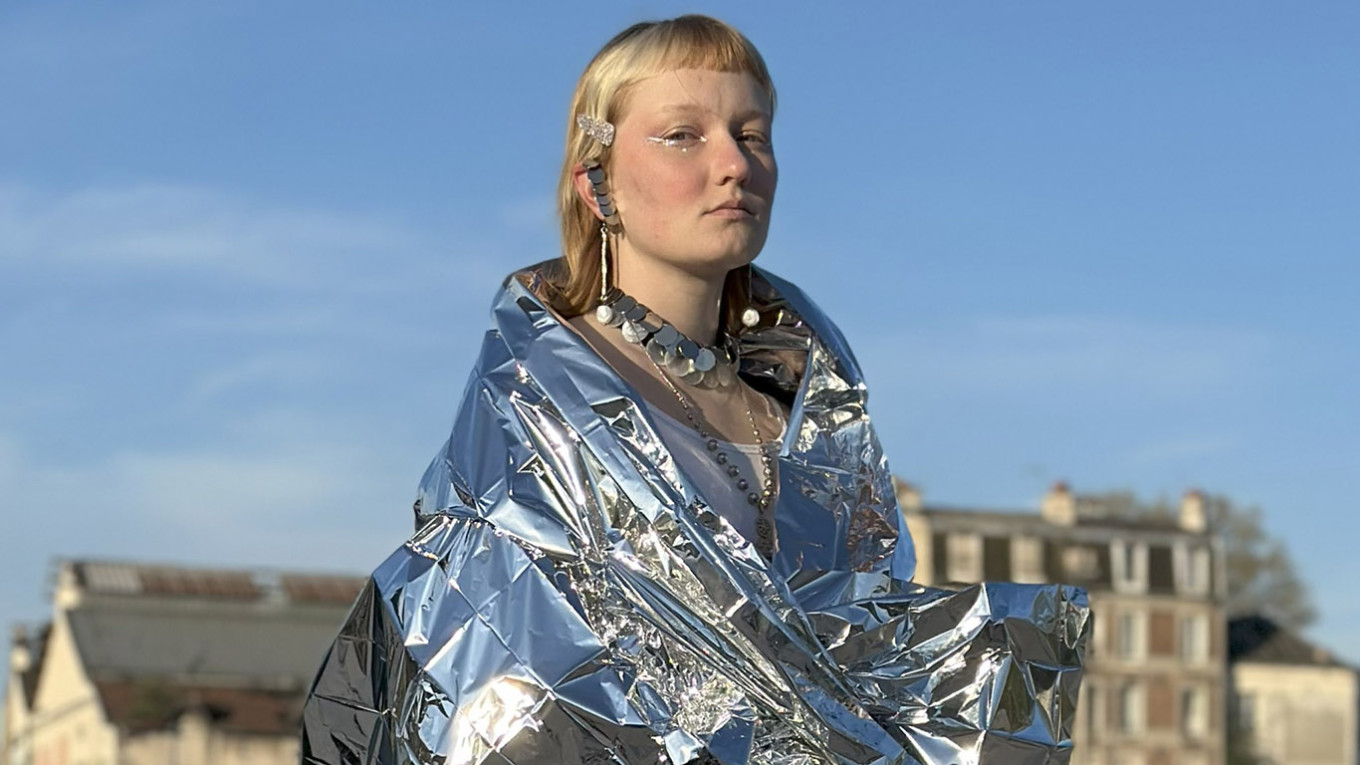
Among the Chuvash, there’s a deep trauma connected to traditional dress, which is often adorned with a large number of coins. In the Soviet Union, simply keeping such a costume at home could be grounds for an arrest or execution. These coins sometimes included large quantities of pre-revolutionary currency, which made them even more dangerous.
Cultural repressions took many forms and affected millions of people whose ancestors now live with the inherited trauma of fear and shame.
It could be humiliation — being bullied at school for being ‘different,’ being treated with prejudice, being made to feel lesser just for being of another ethnicity. Saying 'I’m Chuvash' can still be a vulnerable, even dangerous, act.
Modern Russian authorities continue to repress Indigenous people through legal mechanisms, labeling those who speak about cultural diversity, native languages, or identity as foreign agents, extremists and terrorists.
Russia carries out colonization in two ways: it tries to erase what exists inside the country, and that internal erasure enables the erasure of its external borders.
What does the decolonization of Russia mean to you, both in life and in art?
I see two primary directions of decolonization. The first one is personal — it’s about working with your experiences, your knowledge. The second is political — it’s about the right of people to self-determination.
I believe the first and most crucial step of decolonization is accepting one’s background, one’s past, and the trauma or rejection that may come with it. Many families living in Russia have mixed cultural backgrounds, histories of displacement or repression, and it can be painful and difficult to face that. But by working through it, you can find incredible strength and grounding.
Another essential part of decolonization is working with one’s sense of self. Because so much of the knowledge about Indigenous cultures — in books, in museums — was filtered through a deeply colonial lens, written or curated by people outside the culture. They may have oversimplified things or treated them as secondary or less important.
Because Indigenous cultures were appropriated and ‘museumified’ by outsiders, even the cultural carriers themselves have developed a kind of taboo around claiming their heritage. There are these 'correct' examples of cultural expression shown in museums or textbooks, and people feel that only they are legitimate.
But culture lives when it’s in people’s hands — when new things are created, when new masters and artists emerge, when old patterns and symbols are given new contexts, new media, new forms.
So decolonizing knowledge, to me, is about removing the taboo around engaging with your own culture, around using it, and also letting go of the shame or fear that you might be doing something ‘wrong.’
Without that internal foundation, without understanding what you’re defending, it’s incredibly hard to fight for your political rights. But after this inner work is done, people will be able to claim their right to independence or political decentralization, if that’s what they need.
Aysha Demina’s art will be displayed at the second edition of Artists Against the Kremlin, an art exhibition organized by The Moscow Times and All Rights Reversed gallery at De Balie in Amsterdam from Aug. 15-Sept. 4.
Visit the exhibition website for more information.
A Message from The Moscow Times:
Dear readers,
We are facing unprecedented challenges. Russia's Prosecutor General's Office has designated The Moscow Times as an "undesirable" organization, criminalizing our work and putting our staff at risk of prosecution. This follows our earlier unjust labeling as a "foreign agent."
These actions are direct attempts to silence independent journalism in Russia. The authorities claim our work "discredits the decisions of the Russian leadership." We see things differently: we strive to provide accurate, unbiased reporting on Russia.
We, the journalists of The Moscow Times, refuse to be silenced. But to continue our work, we need your help.
Your support, no matter how small, makes a world of difference. If you can, please support us monthly starting from just $2. It's quick to set up, and every contribution makes a significant impact.
By supporting The Moscow Times, you're defending open, independent journalism in the face of repression. Thank you for standing with us.
Remind me later.



